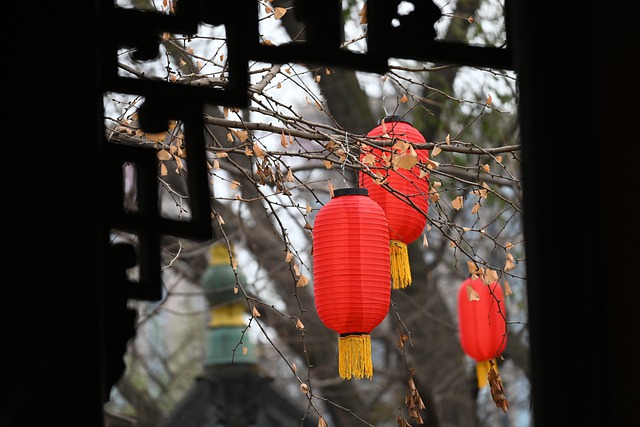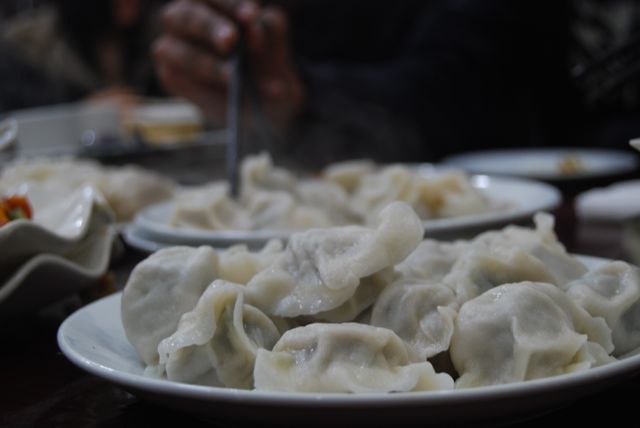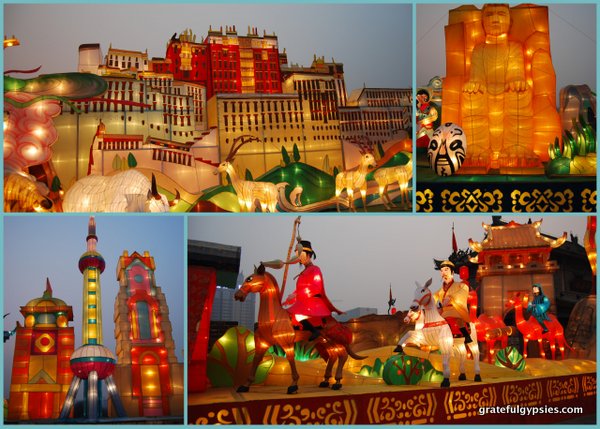A Daily Guide for Spring Festival Posted by sasha on Feb 15, 2022 in Culture, Holidays
The Spring Festival is the most important holiday in China (春节是中国最重要的节日 chūn jié shì zhōng guó zuì zhòng yào de jié rì). We’ve talked about this traditional festival a lot here on the blog, including this Spring Festival history lesson and a post about the busy travel season known as chun yun (春运 chūn yùn). But what happens after the big dinner and all the fireworks? Well, more fireworks of course, but that’s not all. In this post, we’ll take a closer look at days 2-15 of the Spring Festival.
Days 2-15 of Spring Festival
The second day of the New Year is known as the beginning of the year (开年 kāi nián). Many women who have been married will visit their parents, as chances are they don’t do this very often during the year. Also, many people will pray and make offerings to their ancestors and the gods on this day. Some believe that this day is the birthday of all dogs, so puppies everywhere will get a special treat.
The third day of the New Year is known as red mouth (赤口 chì kǒu). As this sounds similar to the word for the God of Blazing Wrath (赤狗日 chì gǒu rì), it is believed that this is not a good day to visit relatives or friends. Some will visit the graves of recently deceased relatives to pay their respects. The fourth day is basically a continuation of the third, and some men will visit and pay respects to their in-laws (姻亲 yīn qīn).
Day #5 is known as Po Wu (破五 pò wǔ), and it’s another day for eating dumplings (水饺 shuǐ jiǎo) in northern China (there really are so many of them). It is also believed that this day is the birthday of the Chinese God of Wealth (财神 cái shén). On this day, no one visits family and friends, as it is believed doing so will bring both parties bad luck.
The sixth day is a time to visit temples, family, and friends freely. On the seventh day, Chinese will celebrate the common man’s birthday (人日 rén rì). On this day, everyone grows one year older. Special foods are eaten according to the origin of the people. For example, some eat noodles for longevity, while others eat raw fish for success.
By the eighth day, a whole lot of celebrating has been done, and it’s time for most people to get back to work. Government agencies and businesses will open their doors up once again, and the official holiday comes to an end. Some businesses will have a special lunch or dinner to thank their employees for all their hard work leading up to the New Year.
The ninth day is meant to make offerings for the birthday of the Jade Emperor of Heaven (天公 tiān gōng). After that, the tenth through twelfth days are spent enjoying more delicious food with family and friends. With so much eating over two weeks, Day #13 is a day to start trying to work off all of that holiday feasting. On this day, people will eat purely vegetarian foods (素食 sù shí) to cleanse their stomachs.
With the festival finally drawing to a close, the fourteenth day is spent making decorations for the next and final day – the Lantern Festival (元宵节 yuán xiāo jié). This is the first day of the full moon, so rice dumplings (汤圆 tāng yuán) that resemble the moon are eaten.
Outside of homes everywhere, candles are lit to guide wayward spirits home. People decorate lanterns and carry them through the streets to temples on this special day. Also, as fireworks officially become illegal at the end of the Spring Festival, people will blow up their remaining stash, making the streets light up in a noisy blaze.
In city’s all across China, local parks and historical sights come alive in a sea of colorful lanterns during the last few days of the Spring Festival. I’ve experienced this on the City Wall (城墙 chéng qiáng) in Xi’an as well as the Grand View Park in Kunming. These were some of the best experiences I had in my many years living in China and I highly recommend you check it out one day if you get the chance. Here’s a short video I put together showing the Lantern Festival in these two places:
Speaking of the Lantern Festival, it’s actually today! That does it for the 15-day celebration of the Spring Festival as we enter the Year of the Tiger (虎年 hǔ nián). I’ll have a post up soon about the 3rd year in the Chinese zodiac calendar, so stay tuned.

Build vocabulary, practice pronunciation, and more with Transparent Language Online. Available anytime, anywhere, on any device.







Leave a comment: